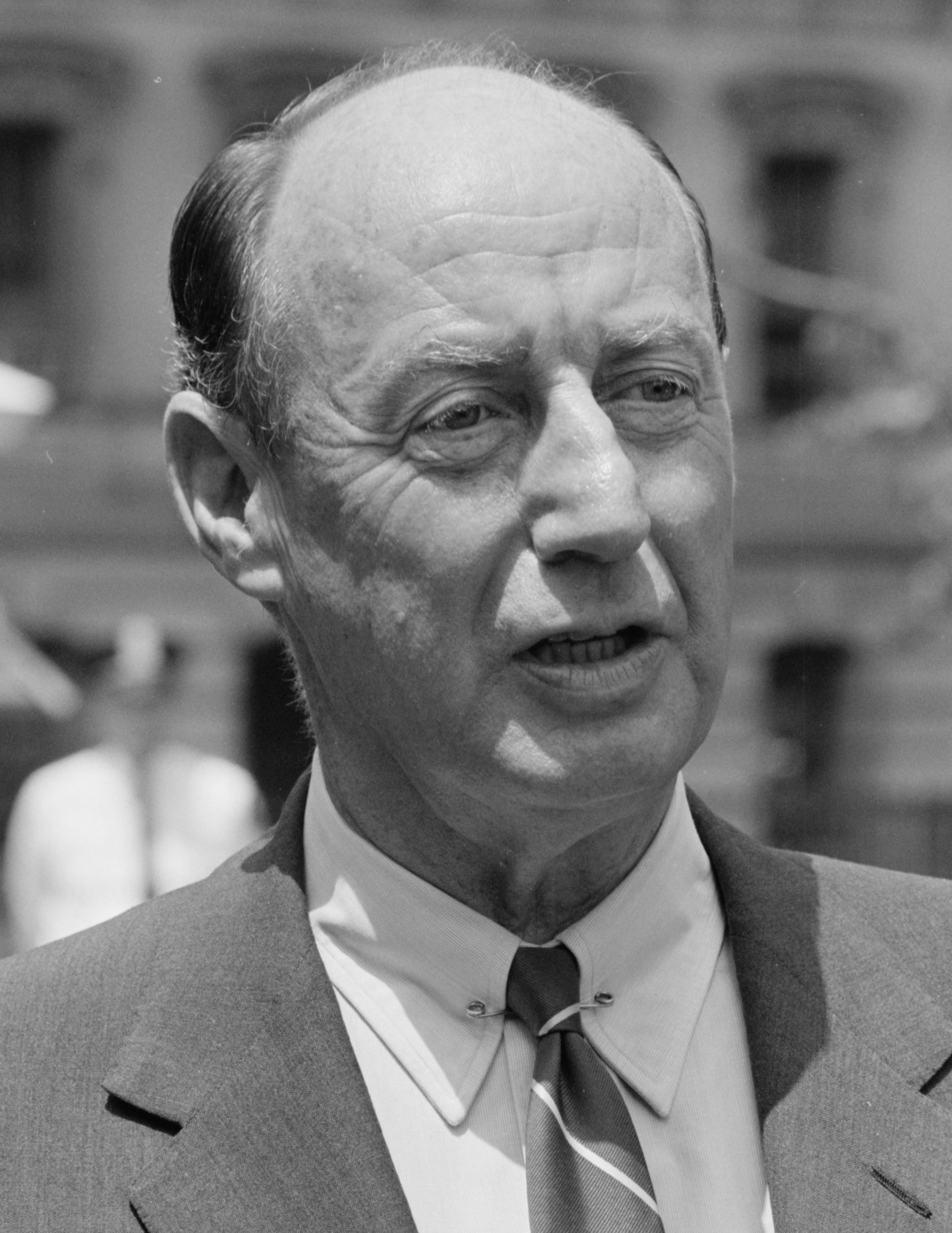Campaign statement in Fresno, California (10 September 1952); earlier incidence of similar comments exist:
If Mr. Hughes will stop lying about me, I will stop telling the truth about him.
William Randolph Hearst, about Charles Evans Hughes, in 1906, as quoted in The Quote Verifier : Who Said What, Where, and When (2006) by Ralph Keyes
If you will refrain from telling any lies about the Republican Party, I'lll promise not to tell the truth about the Democrats.
Chauncey Depew, as quoted in "If Elected I Promise … "Stories and Gems of Wisdom by and About Politicians (1969) by John F. Parker
Adlai Stevenson Quotes
“I have sometimes said that flattery is all right, Mr. President, if you don't inhale it.”
Opening sentence of Stevenson's first appearance at the UN as UN Ambassador, February 1, 1961. From "Looking Outward", by Adlai Stevenson, p. 3
Speeches of Adlai Stevenson (1952), p. 39
“Freedom rings where opinions clash.”
Variations of this quote are often attributed to Stevenson without a date or location for the remark. Two early occurrences are in a Congressional hearing on November 13, 1985, where Stevenson was quoted by Representative Ted Weiss ("Limits on the Dissemination of Information by the Department of Education" (1986), published by the GPO); and an article dated June 4, 1989 by Sue Ann Wood in the St. Louis Post-Dispatch ("Write Editor, Readers Urged"). No source closer to Stevenson has been found.
Disputed
As quoted in Seeds of Peace : A Catalogue of Quotations (1986) by Jeanne Larson and Madge Micheels, p. 265
“She would rather light a candle than curse the darkness, and her glow has warmed the world.”
Remark upon learning of the death of Eleanor Roosevelt, drawing upon the motto of the Christopher Society: "It is better to light one candle than curse the darkness." ; quoted in The New York Times (8 November 1962)
Speech to the UN Economic and Social Council, Geneva, Switzerland (9 July 1965)
Commencement address at Michigan State University The New York Times (9 June 1958)
Speech to the United Parents Association, as quoted in The New York Times (6 April 1958)
Presidential campaign address, Miami, Florida, (September 1956), as quoted in Best Quotes of '54, '55, '56 (1957) edited by James Beasley Simpson
Essay in This I Believe : 2 (1952) edited by Edward R. Murrow, p. 142
Speech to the Los Angeles Town Club, Los Angeles, California (11 September 1952); Speeches of Adlai Stevenson (1952), p. 36
Speech in New York City (28 August 1952)
Speech to the American Legion convention, New York City (27 August 1952); as quoted in "Democratic Candidate Adlai Stevenson Defines the Nature of Patriotism" in Lend Me Your Ears : Great Speeches In History (2004) by William Safire, p. 79 - 80
Voicing opposition to the McCarran Internal Security Act of 1950
Address to the Democratic National Convention, Chicago, Illinois. (21 July 1952); published in Speeches of Adlai Stevenson (1952) p. 17
